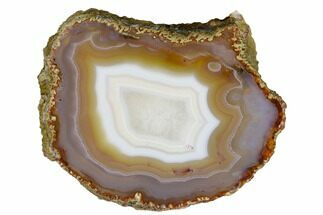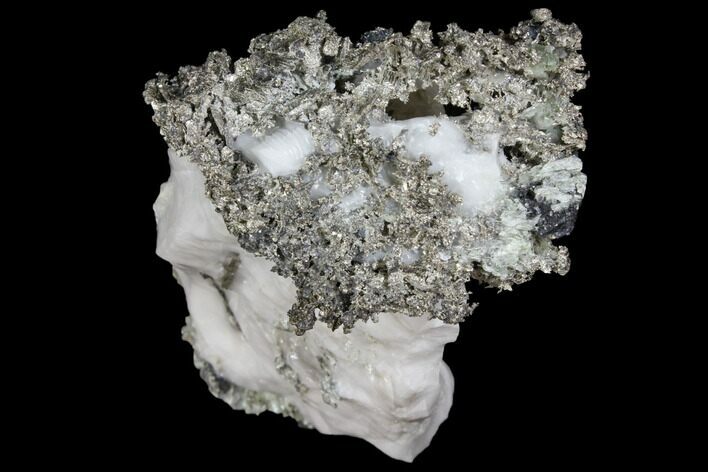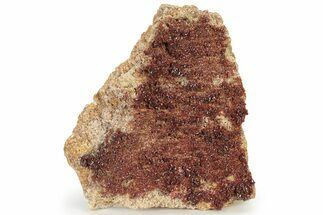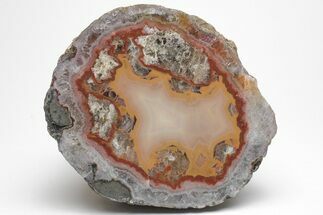This Specimen has been sold.
3.9" Native Silver Formation On Calcite - Morocco
This is a 3.9" wide specimen of native silver in calcite. It was mined from the Bouismas Mine in the Zagora Province of Morocco. The silver has been acid etched free of the calcite which was originally surrounding it, revealing the beautiful plant-like branching structure.
Native silver (Ag) is an uncombined form of silver that occurs as a natural mineral. Silver is one of the few precious metallic elements to occur in native form, although it most commonly occurs naturally mixed with other elements like gold, mercury, arsenic, and antimony.
About Calcite Crystals
Calcite crystals are a form of calcium carbonate (CaCO₃) known for their diverse shapes, transparency, and vibrant range of colors. They typically form in rhombohedral, scalenohedral, or prismatic shapes, often with well-defined, sharp edges and glossy surfaces. Calcite crystals are often translucent or transparent, sometimes displaying a double refraction effect where objects viewed through the crystal appear doubled. They can appear in various colors—white, clear, yellow, pink, blue, green, and orange—depending on impurities or trace minerals.
A notable characteristic of calcite is its reaction with weak acids like vinegar, which causes it to effervesce, or fizz, as it releases carbon dioxide. This property makes calcite crystals a key tool in geological identification and studies. Calcite forms in many environments, from sedimentary rocks like limestone and marble to hydrothermal veins.
Calcite crystals are a form of calcium carbonate (CaCO₃) known for their diverse shapes, transparency, and vibrant range of colors. They typically form in rhombohedral, scalenohedral, or prismatic shapes, often with well-defined, sharp edges and glossy surfaces. Calcite crystals are often translucent or transparent, sometimes displaying a double refraction effect where objects viewed through the crystal appear doubled. They can appear in various colors—white, clear, yellow, pink, blue, green, and orange—depending on impurities or trace minerals.
A notable characteristic of calcite is its reaction with weak acids like vinegar, which causes it to effervesce, or fizz, as it releases carbon dioxide. This property makes calcite crystals a key tool in geological identification and studies. Calcite forms in many environments, from sedimentary rocks like limestone and marble to hydrothermal veins.
SPECIES
Silver (Ag) & Calcite
LOCATION
Bouismas Mine, Zagora Province, Drâa-Tafilalet Region, Morocco
SIZE
3.9 x 3.2"
CATEGORY
ITEM
#152617
 Reviews
Reviews














